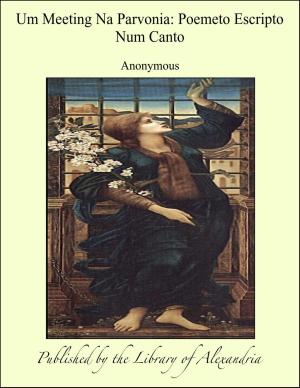| Author: | Maksim Gorky, Others | ISBN: | 9781465591524 |
| Publisher: | Library of Alexandria | Publication: | March 8, 2015 |
| Imprint: | Language: | English |
| Author: | Maksim Gorky, Others |
| ISBN: | 9781465591524 |
| Publisher: | Library of Alexandria |
| Publication: | March 8, 2015 |
| Imprint: | |
| Language: | English |
The re-birth of Russia which is now taking place cannot be understood apart from the Jewish problem. As Russia's leading Liberal statesman, Prof. Paul Milukov—who is well and favorably known in America because of extended visits here—points out in the article he contributes to the present volume, the anti-Semitic parties coincide with the anti-constitutional parties. At first this seems a strange and unaccountable fact, but a brief glance at the history of other countries will show that the party standing for the persecution of weak foreign neighbours and the oppression of minority races within and without a country has always and everywhere been the party of reaction. As Milukov says, there was no need for an anti-constitutional movement until there was a constitutional movement. As soon as Liberalism appeared, however, and gained support among the masses, it was necessary to fabricate some counter movement, and the governmental bureaucracy fixed upon anti-Semitism as a primitive means of appealing to the masses, and so of bridling them. It may be further pointed out that this systematic propaganda against democracy was almost non-existent in Russia until it had become thoroughly organised and successful in Germany. Both Kovalevsky and Milukov demonstrate in the present volume that anti-Semitism became an important factor in Russian life only after the middle of the Nineteenth Century—that is to say, after the final victory of Prussian Reactionism over German Liberalism in 1849 (a victory which has lasted to the present time)—and still more, after the great military victories of Prussia from 1864 to 1870 had put Prussian militarism in the saddle and had made it the dominating force in the Russian court and Russian bureaucracy.
The re-birth of Russia which is now taking place cannot be understood apart from the Jewish problem. As Russia's leading Liberal statesman, Prof. Paul Milukov—who is well and favorably known in America because of extended visits here—points out in the article he contributes to the present volume, the anti-Semitic parties coincide with the anti-constitutional parties. At first this seems a strange and unaccountable fact, but a brief glance at the history of other countries will show that the party standing for the persecution of weak foreign neighbours and the oppression of minority races within and without a country has always and everywhere been the party of reaction. As Milukov says, there was no need for an anti-constitutional movement until there was a constitutional movement. As soon as Liberalism appeared, however, and gained support among the masses, it was necessary to fabricate some counter movement, and the governmental bureaucracy fixed upon anti-Semitism as a primitive means of appealing to the masses, and so of bridling them. It may be further pointed out that this systematic propaganda against democracy was almost non-existent in Russia until it had become thoroughly organised and successful in Germany. Both Kovalevsky and Milukov demonstrate in the present volume that anti-Semitism became an important factor in Russian life only after the middle of the Nineteenth Century—that is to say, after the final victory of Prussian Reactionism over German Liberalism in 1849 (a victory which has lasted to the present time)—and still more, after the great military victories of Prussia from 1864 to 1870 had put Prussian militarism in the saddle and had made it the dominating force in the Russian court and Russian bureaucracy.















